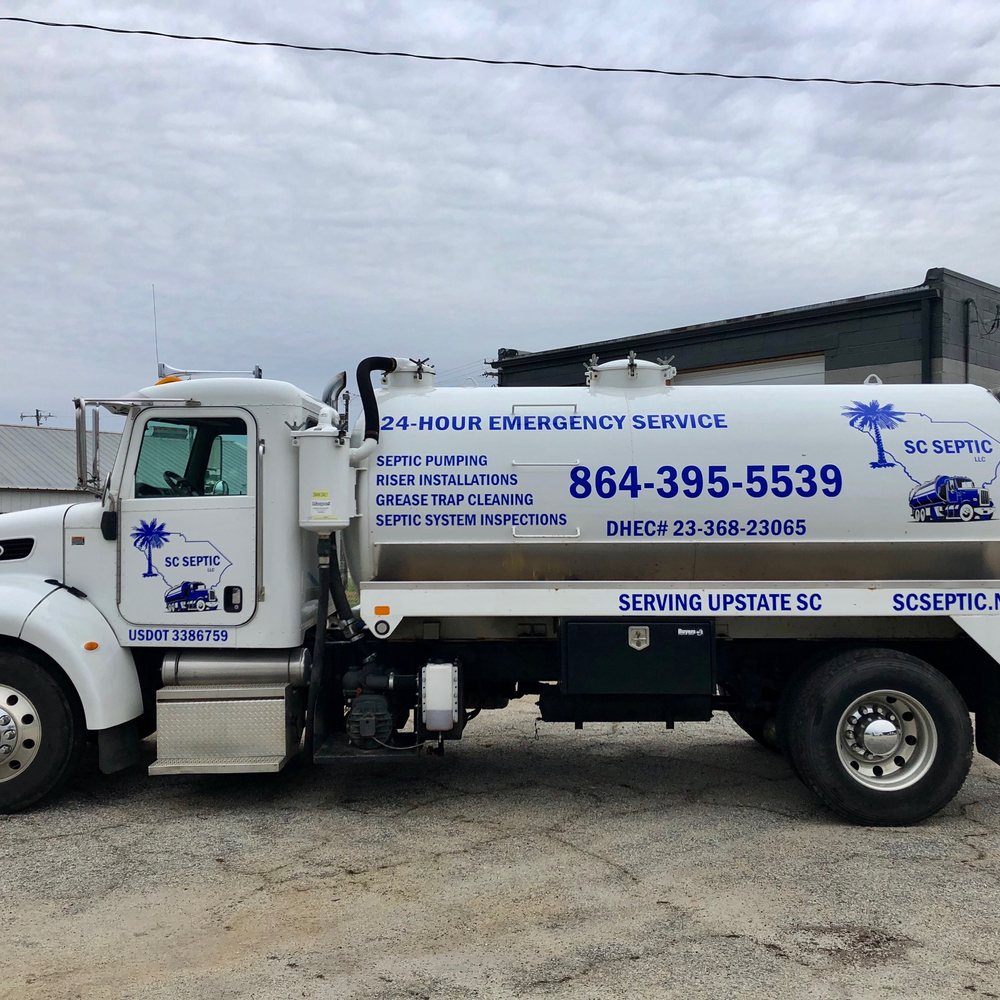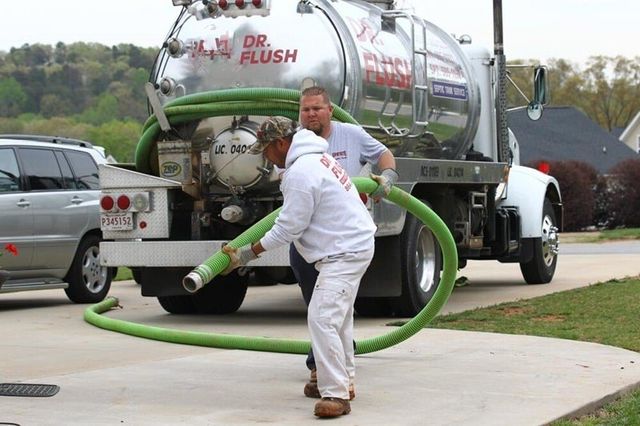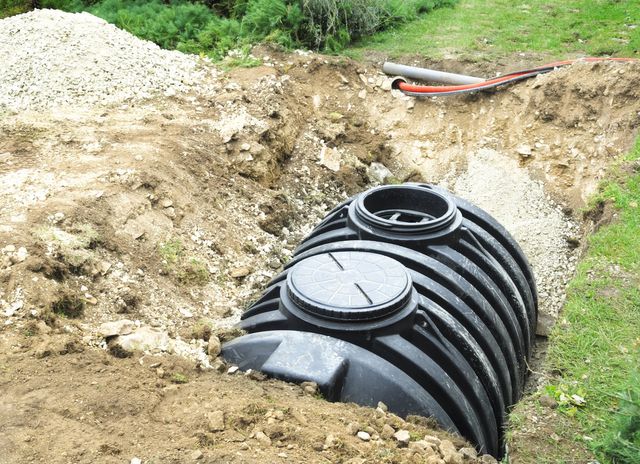If you’re a resident of Spartanburg in need of septic tank pumping, look no further! Our team is here to provide you with top-notch service to keep your septic system running smoothly. We understand the importance of a well-maintained septic tank and are committed to ensuring your satisfaction. With our expertise and dedication, you can trust us to handle all your septic tank pumping needs in Spartanburg.

Why Septic Tank Pumping is Important
Septic tank pumping plays a crucial role in maintaining the functionality and longevity of your septic system. Regular pumping not only prevents plumbing problems but also helps avoid system failure and protects the environment.
Prevent Plumbing Problems
By regularly pumping your septic tank, you can prevent a host of plumbing problems that could otherwise arise. When the tank becomes full, solids and sludge can accumulate, causing clogs and blockages in your pipes. This can lead to slow drains, backups, and even sewage overflow into your home or yard. By pumping the tank, you remove these solids and prevent them from causing costly and inconvenient plumbing issues.
Avoid System Failure
Neglecting to pump your septic tank regularly can lead to system failure, which can be a major headache to deal with. When the tank becomes overloaded with solids, it can no longer effectively separate and treat wastewater. This can result in sewage backups, foul odors, and the potential for contamination of your water sources. By scheduling regular septic tank pumping, you can prevent system failure and ensure the proper functioning of your septic system.
Protect the Environment
Septic systems are designed to treat wastewater before it enters the environment. However, if the septic tank is not pumped regularly, it can become overwhelmed with solids, leading to untreated wastewater being released into the environment. This can contaminate nearby water sources, harm aquatic life, and pose a risk to public health. By maintaining a proper pumping schedule, you are doing your part to protect the environment and preserve the quality of our natural resources.
How Often Should You Pump Your Septic Tank?
The frequency at which you should pump your septic tank depends on various factors, including household size, water usage, and additional considerations.
Based on Household Size
As a general guideline, it is recommended to have your septic tank pumped every 3-5 years for an average household of 2-4 people. Larger households or those with more frequent visitors may require more frequent pumping, while smaller households may be able to extend the pumping interval. However, it is essential to consider other factors that can affect the need for pumping.
Depends on Water Usage
The more water that flows into your septic system, the quicker it fills up with solids. High water usage can strain the septic tank, requiring more frequent pumping. Factors that contribute to increased water usage include large families, excessive laundry, long showers, and inefficient water fixtures. If you notice a significant increase in your water usage habits, it may be a good idea to adjust your septic tank pumping schedule accordingly.
Consider Additional Factors
In addition to household size and water usage, there are other factors that can influence the frequency of septic tank pumping. These include the size of the septic tank, the age of the system, the type of soil in your drainage field, and the presence of garbage disposals. Consulting with a professional septic tank service can help assess these factors and determine the optimal pumping schedule for your specific circumstances.
Signs That Your Septic Tank Needs Pumping
While adhering to a regular pumping schedule is important, it is equally crucial to be aware of the signs that indicate your septic tank needs immediate attention.
Slow Drains and Backups
One of the most common signs that your septic tank is full and in need of pumping is slow drains or backups in your plumbing fixtures. If you notice that sinks, toilets, or showers are draining slowly or not at all, it may be an indicator that your septic tank is nearing capacity. Ignoring these warning signs can lead to more severe plumbing issues, so it’s essential to take action promptly.
Foul Odors
Unpleasant odors emanating from your drains, yard, or near the septic tank itself can be a strong indication of a full or malfunctioning septic tank. These odors are caused by the buildup of gases produced during the decomposition of organic matter within the tank. If you notice foul smells that persist even after attempting to eliminate them through regular maintenance, it’s time to call a professional septic tank service to assess and potentially pump your tank.
Lush Grass over the Drainfield
While it’s natural for grass to be greener and healthier in the vicinity of a septic system, an excessively lush and vibrant patch of grass over the drainfield can indicate a problem. If your drainfield becomes saturated due to an overloaded septic tank, it may release excess nutrients and water, creating an ideal environment for plant growth. If you notice a sudden change in the appearance of your drainfield or a specific area of your yard, it is worth investigating and considering septic tank pumping.
Choosing a Professional Septic Tank Service
Selecting a reputable and experienced professional septic tank service is vital to ensure the proper maintenance and servicing of your septic system.
Experience and Reputation
When choosing a septic tank service, it’s essential to consider their experience in the industry. Look for companies with a proven track record of providing reliable and efficient septic tank pumping services. Reading online reviews and seeking recommendations from friends, family, or neighbors can also help you gauge the reputation and reliability of the service provider.
Certifications and Licenses
Ensure that the septic tank service you choose has the necessary certifications and licenses to operate in your area. These credentials indicate that the service provider meets the industry standards and regulations, giving you peace of mind that they are qualified to handle your septic system’s needs.
Range of Services
In addition to septic tank pumping, it’s beneficial to choose a service provider that offers a comprehensive range of services related to septic systems. This can include inspections, repairs, maintenance, and installation of new systems. Opting for a service provider with a broad range of expertise can save you time and effort in the long run by providing a one-stop-shop for all your septic system needs.

The Septic Tank Pumping Process
Understanding the septic tank pumping process helps you have a clear idea of what to expect when scheduling this essential maintenance task.
Inspection and Assessment
Before proceeding with pumping, a professional septic tank service will perform an inspection and assessment of your septic system. This involves locating and accessing the tank, evaluating its condition, and identifying any potential issues that may require further attention. This assessment helps determine the appropriate course of action and ensures that the pumping process is carried out effectively.
Locating the Tank and Access Points
Septic tanks are typically buried underground, making it necessary to locate the tank and its access points before pumping. Professional septic tank services utilize specialized tools and techniques to accurately identify the tank’s location, minimizing disruption to your property during the pumping process. They will locate both the inlet and outlet access points, as well as the inspection ports, to ensure all areas are properly serviced.
Septic Tank Pumping Procedure
Once the tank and access points have been located, the pumping process can begin. Using powerful pumps and vacuum trucks, the service provider will carefully remove the accumulated solids and sludge from the septic tank. This process involves pumping out the tank’s contents into a tank truck for proper disposal at authorized facilities. After pumping, the service provider may also conduct a final inspection to ensure the tank is clean and operating optimally.
Tips for Maintaining a Healthy Septic System
While regular septic tank pumping is crucial, implementing some simple maintenance practices can go a long way in ensuring the health and longevity of your septic system.
Regular Inspections
In addition to pumping, it’s important to schedule regular inspections of your septic system. A professional septic tank service can assess the overall condition of your system, identify any potential issues, and provide recommendations for maintenance or repairs. By addressing problems early on, you can prevent costly and disruptive issues down the line.
Proper Disposal of Waste
To maintain a healthy septic system, it’s essential to practice proper waste disposal. Avoid flushing non-biodegradable items such as wipes, hygiene products, or paper towels down the toilet, as these can cause clogs and damage to your system. Additionally, be mindful of what you pour down your drains and avoid excessive use of harsh chemicals that can disrupt the natural balance of bacteria in your septic tank.
Water Conservation
Conserving water is not only beneficial to the environment but also helps maintain a healthy septic system. Excessive water usage can overload your septic tank, leading to increased pumping frequency and potential system failure. Implementing water-saving practices such as fixing leaks, using efficient fixtures, and spreading out water usage throughout the day can alleviate strain on your septic system.

Common Mistakes to Avoid with Septic Tanks
To ensure the proper functioning and longevity of your septic system, it’s important to avoid these common mistakes:
Flushing Non-Biodegradable Items
As mentioned earlier, flushing non-biodegradable items down the toilet can wreak havoc on your septic system. Avoid disposing of wipes, hygiene products, or other materials that do not break down naturally in the septic tank. These items can accumulate, clog your pipes, and overwhelm your system.
Excessive Water Usage
Using excessive amounts of water puts unnecessary strain on your septic system. Take steps to conserve water and be mindful of your water consumption habits. Consider installing water-efficient fixtures, fixing leaks promptly, and spreading out activities that require large amounts of water, such as laundry or bathing.
Skipping Regular Maintenance
Neglecting regular maintenance tasks, including pumping and inspections, can have detrimental effects on your septic system. Skipping these essential tasks may result in clogs, backups, and even system failure. By staying on top of routine maintenance, you can prevent costly repairs and keep your septic system running smoothly.
Benefits of Regular Septic Tank Pumping
Adhering to a regular septic tank pumping schedule provides numerous benefits for both you and your septic system.
Prevent Costly Repairs
Regular septic tank pumping helps prevent the occurrence of costly repairs. By removing the accumulated solids and sludge, you reduce the risk of clogs, blockages, and backups in your plumbing system. Additionally, proactive pumping can help identify potential issues early on, allowing for timely repairs and preventing more extensive damage or system failure.
Extend the Lifespan of Your System
A well-maintained septic system can have a significantly longer lifespan. Regular pumping removes the solids that can potentially cause damage to your system’s components, such as pumps and drainfield pipes. By extending the life of your septic system, you can save money in the long run by avoiding the need for premature replacements or extensive repairs.
Maintain Property Value
A properly functioning septic system is essential for maintaining the value and marketability of your property. Potential buyers are often wary of purchasing properties with septic systems that have a history of problems or neglect. By prioritizing regular septic tank pumping and maintenance, you can confidently showcase your property as well-maintained and increase its attractiveness on the real estate market.

Finding Septic Tank Pumping Services in Spartanburg
When in need of septic tank pumping services in Spartanburg, consider the following steps to ensure you choose a reliable and reputable service provider.
Ask for Recommendations
Reach out to friends, family, neighbors, or local community groups to gather recommendations for septic tank services in Spartanburg. Personal experiences and word-of-mouth referrals can provide valuable insight into the quality of service and customer satisfaction.
Check Online Reviews
Research online review platforms to find additional feedback and ratings for septic tank services in Spartanburg. Reviews from previous customers can help you gauge the reliability, professionalism, and overall satisfaction of the service provider. Look for companies with consistently positive reviews and a reputation for exceptional service.
Request Quotes and Estimates
Contact multiple septic tank service providers in Spartanburg to request quotes and estimates for their pumping services. This will allow you to compare prices, services offered, and get a sense of the level of professionalism and customer service provided by each company. Remember to consider other factors such as experience, certifications, and range of services when making your decision.
Conclusion
Septic tank pumping is a vital aspect of maintaining a healthy and functional septic system. By adhering to a regular pumping schedule and implementing proper maintenance practices, you can prevent plumbing problems, avoid system failure, and protect the environment. It is important to choose a reliable and experienced professional septic tank service for all your septic system needs. Taking care of your septic system ensures the longevity of your system, prevents costly repairs, and maintains the value of your property. When searching for septic tank pumping services in Spartanburg, gathering recommendations, checking online reviews, and requesting quotes can help you find a trustworthy service provider. By prioritizing the importance of septic tank pumping and choosing reliable professionals, you are taking proactive steps to ensure the continued functionality and efficiency of your septic system.

